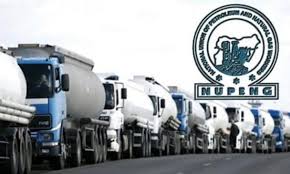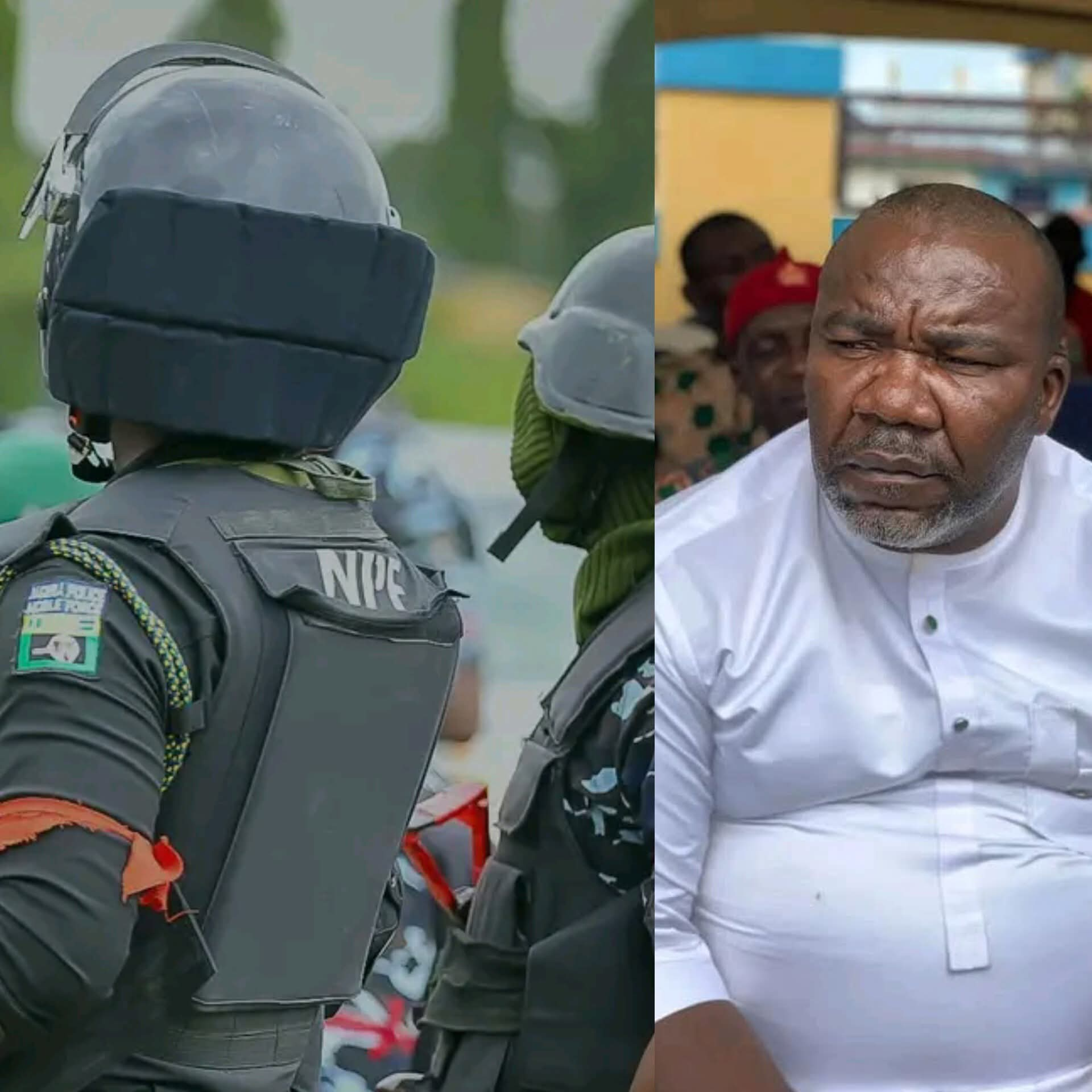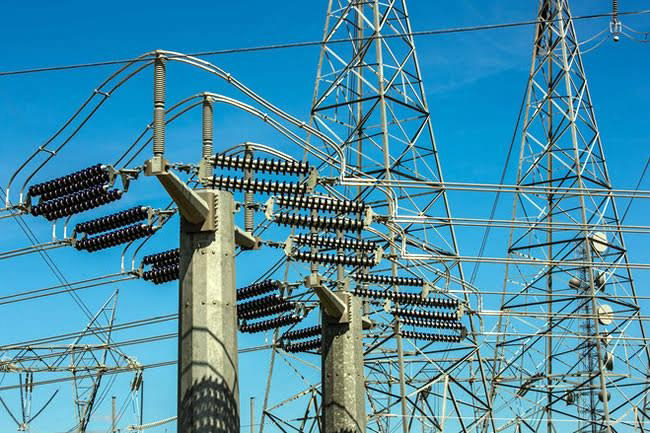In a dramatic escalation of tensions within Nigeria’s oil and gas sector, the Petroleum Tanker Drivers (PTD), a critical arm of the Nigeria Union of Petroleum and Natural Gas Workers (NUPENG), have publicly disavowed their parent union’s leadership, accusing it of corruption, extortion, and actions that threaten the nation’s economic stability. The PTD’s rebellion comes in response to NUPENG’s planned nationwide strike, set to commence on Monday, September 8, 2025, to protest reforms in the downstream petroleum sector, particularly those spearheaded by Dangote Refinery. The drivers have called for the immediate arrest of NUPENG’s top executives, labeling them “economic saboteurs” who prioritize personal gain over the welfare of their members and the broader Nigerian populace.
This development has also drawn sharp criticism from the Association of Distributors and Transporters of Petroleum Products (ADITOP), which has accused NUPENG of extorting its members through illegal levies at fuel depots, tank farms, and refineries. The growing rift between NUPENG, its tanker drivers’ branch, and petroleum distributors underscores deep-seated issues within the union’s leadership and raises concerns about the potential economic fallout of a disrupted fuel supply chain. As Nigeria grapples with economic challenges, including inflation and fuel price volatility, the conflict threatens to exacerbate hardships for millions of citizens reliant on stable petroleum distribution.
Background: The Role of NUPENG and PTD in Nigeria’s Oil Industry
The Nigeria Union of Petroleum and Natural Gas Workers (NUPENG) is one of the country’s most influential labor unions, representing workers across the oil and gas value chain, from upstream exploration to downstream distribution. Its Petroleum Tanker Drivers (PTD) branch is particularly vital, as tanker drivers are responsible for transporting petroleum products—such as petrol, diesel, and kerosene—across Nigeria’s vast road network. Any disruption in their operations can lead to fuel shortages, price spikes, and widespread economic disruption, as seen in previous strikes that have paralyzed transportation and commerce.
NUPENG has historically wielded significant influence, often using strikes and industrial actions to press for better working conditions, policy changes, or government intervention in the oil sector. However, the union’s leadership has faced recurring allegations of mismanagement, factionalism, and prioritizing personal interests over those of its members. These tensions have now boiled over, with the PTD openly challenging NUPENG’s authority and aligning themselves with private sector players like Dangote Refinery and MRS Group, led by Alhaji Aliko Dangote and Alhaji Sayyu Dantata, respectively.
The current dispute centers on NUPENG’s opposition to Dangote Refinery’s plan to import 4,000 compressed natural gas (CNG)-powered trucks for direct fuel distribution to retailers. This initiative, part of Dangote’s broader strategy to modernize and streamline Nigeria’s petroleum distribution network, has been hailed by the PTD as a progressive move that could enhance efficiency, reduce illegal levies, and create jobs. However, NUPENG’s leadership has condemned the plan, alleging that it promotes anti-labor practices and threatens the livelihoods of its members by barring newly hired drivers from joining existing unions.
The PTD’s Grievances: A Call for Accountability
In a strongly worded statement jointly signed by Chief (Mrs) Blessing Dafinone of the Warri PTD branch and Comrade Joseph Dagogo-Jack of the Port Harcourt branch, the tanker drivers accused NUPENG President Williams Akporeha and General Secretary Afolabi Olawale of gross mismanagement and intimidation. The PTD described NUPENG’s planned strike as “insensitive and wicked,” arguing that it undermines Nigeria’s economic progress and serves the personal interests of the union’s leadership rather than the collective good of its members.
The drivers alleged that NUPENG has become a shadow of its former self, plagued by internal crises, lawsuits, and factionalism. They claimed that billions of naira collected in union dues from tanker drivers have not been used to improve members’ welfare or provide training and support. Instead, the funds have allegedly been misappropriated, leaving many drivers earning less than ₦50,000 (approximately $30) monthly, with some receiving no regular salary at all. This financial strain has fueled resentment among the rank-and-file members, who feel neglected by a leadership they accuse of pursuing personal enrichment.
The PTD’s statement went further, accusing NUPENG of hypocrisy in its opposition to Dangote Refinery’s CNG truck initiative. The drivers argued that the union’s resistance is driven by a fear of losing control over the lucrative levies imposed at fuel depots and tank farms. These levies, often collected under dubious circumstances, have long been a point of contention in the industry, with distributors and transporters accusing NUPENG of extorting money that is rarely accounted for. The PTD’s alignment with Dangote and Dantata reflects a broader desire for transparency and reform in the sector, which they believe the refinery’s modernization efforts could help achieve.
In a rare and bold move, the PTD called on the Federal Government, National Assembly, and security agencies, including the Department of State Services (DSS) and the Nigeria Police Force, to intervene decisively. They urged the arrest of NUPENG’s leadership to prevent what they described as “further unrest” and to ensure that the union does not “destroy the peace and progress in the oil sector.” This call for law enforcement action underscores the depth of the drivers’ frustration and their belief that NUPENG’s actions threaten not only their livelihoods but also Nigeria’s economic stability.
ADITOP’s Accusations: Extortion and Double Standards
The Association of Distributors and Transporters of Petroleum Products (ADITOP) has echoed the PTD’s criticisms, accusing NUPENG of engaging in extortion and undermining the industry’s progress. ADITOP alleged that NUPENG imposes illegal levies at fuel depots, tank farms, and refineries, placing a significant financial burden on distributors and transporters. These levies, which are often collected without transparency or accountability, have been a long-standing grievance in the downstream sector, contributing to inefficiencies and higher costs for consumers.
ADITOP further criticized NUPENG for its double standards, noting that the union has historically opposed the association’s efforts to operate independently within the petroleum industry. NUPENG’s resistance to ADITOP’s activities, according to the distributors, mirrors its opposition to Dangote Refinery’s CNG truck initiative. Both cases, they argue, reflect NUPENG’s desire to maintain a monopoly over labor and distribution networks, stifling competition and innovation. ADITOP’s accusations add weight to the PTD’s claims, painting a picture of a union leadership that prioritizes control and financial gain over the interests of its members and the industry at large.
NUPENG’s Position: Defending Workers’ Rights or Protecting Influence?
In response to the PTD’s rebellion and ADITOP’s accusations, NUPENG has defended its planned strike, arguing that it is necessary to protect the rights and livelihoods of its members. In a statement issued on September 5, 2025, signed by President Williams Akporeha and General Secretary Afolabi Olawale, NUPENG accused Dangote Refinery and MRS Group of engaging in “unconstitutional and anti-union practices.” The union specifically criticized the refinery’s decision to bar newly hired CNG truck drivers from joining existing labor unions, claiming that this move violates workers’ rights and undermines the principles of collective bargaining.
NUPENG’s leadership argued that Dangote’s plan to import 4,000 CNG-powered trucks threatens to displace existing tanker drivers, many of whom have spent years in the industry. The union claimed that the refinery’s insistence on creating a new union for these drivers, rather than allowing them to join NUPENG, is a deliberate attempt to weaken organized labor and reduce workers’ bargaining power. NUPENG warned that, starting September 8, 2025, its PTD branch would begin seeking “alternative employment/skills and sources of livelihoods,” a veiled threat that suggests a potential withdrawal of labor that could disrupt fuel distribution nationwide.
However, the PTD’s rejection of the strike call indicates a significant fracture within NUPENG’s ranks. The drivers’ refusal to align with their parent union’s directives suggests that NUPENG’s leadership may have miscalculated the level of support for its actions. The union’s insistence on proceeding with the strike, despite opposition from its own members and other stakeholders, raises questions about its motives and the extent to which it represents the interests of its rank-and-file members.
The Dangote Refinery Factor: A Catalyst for Change or Conflict?
At the heart of the dispute is Dangote Refinery, Africa’s largest oil refinery, which has become a lightning rod for both praise and criticism. Owned by billionaire industrialist Aliko Dangote, the refinery is a cornerstone of Nigeria’s efforts to achieve energy self-sufficiency and reduce reliance on imported petroleum products. The refinery’s plan to import 4,000 CNG-powered trucks for direct fuel distribution is part of a broader strategy to modernize the downstream sector, reduce inefficiencies, and lower costs for consumers.
The PTD has praised Dangote and his business partner, Alhaji Sayyu Dantata of MRS Group, as “patriotic businessmen” who are aligning with President Bola Tinubu’s Renewed Hope Agenda. The drivers argue that the CNG truck initiative will eliminate illegal levies, improve fuel distribution efficiency, and create jobs, particularly for young Nigerians. They also contend that the use of CNG-powered trucks aligns with global trends toward cleaner energy and could help reduce Nigeria’s carbon footprint.
However, NUPENG’s opposition to the initiative highlights the tension between modernization and the protection of existing labor structures. The union’s claim that Dangote’s refusal to allow CNG truck drivers to join existing unions constitutes an anti-labor practice has sparked a broader debate about the balance between innovation and workers’ rights. Critics of NUPENG, including energy analyst Dan D. Kunle, argue that the union’s resistance is less about protecting workers and more about preserving its influence over the industry. Kunle noted that a company operating 10,000 trucks could significantly reduce NUPENG’s membership base and, consequently, its ability to collect dues and exert control through strikes.
Economic and Social Implications
The looming strike threat and the ongoing conflict within NUPENG have raised concerns about potential disruptions to Nigeria’s fuel supply chain. Fuel shortages, a recurring issue in Nigeria, can lead to long queues at filling stations, inflated prices, and disruptions to transportation and commerce. With inflation already straining households and businesses, any interruption in fuel distribution could have severe economic consequences, further exacerbating public discontent.
The PTD’s call for the arrest of NUPENG’s leadership has also intensified the stakes, drawing the attention of government and security agencies. The drivers’ appeal to the Federal Government, National Assembly, and security forces underscores the urgency of resolving the conflict before it escalates further. The involvement of law enforcement, however, raises questions about the potential for heavy-handed responses and the broader implications for labor rights and freedom of association in Nigeria.
Moreover, the dispute highlights deeper systemic issues within Nigeria’s oil and gas sector, including corruption, inefficiency, and resistance to reform. The allegations of extortion and mismanagement leveled against NUPENG echo longstanding criticisms of the sector, where opaque practices and vested interests have often hindered progress. The PTD’s support for Dangote’s modernization efforts suggests a growing demand for transparency and accountability, but the path to reform is fraught with challenges, particularly when powerful unions like NUPENG are involved.
A Fractured Union: The Threat of a PTD Breakaway
The PTD’s rebellion against NUPENG is not an isolated incident but part of a broader pattern of discontent within the union. In November 2023, the PTD threatened to break away from NUPENG if Akporeha and Olawale did not resign, citing similar allegations of mismanagement and incompetence. The drivers accused Akporeha of lacking the qualifications to lead the union, alleging that he was a cook in an oil company and not a petroleum worker, in violation of NUPENG’s constitution. These earlier tensions, combined with the current dispute, suggest that NUPENG is grappling with a deepening leadership crisis that could lead to a permanent split.
A potential breakaway by the PTD would have significant implications for NUPENG’s influence and the broader labor movement in Nigeria. The tanker drivers are a critical component of the union’s membership, and their departure could weaken NUPENG’s ability to mobilize workers and negotiate with employers and the government. It could also embolden other factions within the union to challenge the leadership, further fragmenting an already divided organization.
The Way Forward: Negotiation or Confrontation?
As the September 8, 2025, strike deadline approaches, stakeholders across Nigeria’s oil and gas sector are on high alert. The PTD’s call for calm and its urging of drivers to ignore NUPENG’s strike notice have mitigated the immediate threat of disruption, but the underlying issues remain unresolved. The Federal Government, which has a vested interest in maintaining stability in the oil sector, may need to intervene to mediate between NUPENG, the PTD, and Dangote Refinery. Such mediation could involve addressing the concerns of all parties, including ensuring that modernization efforts do not come at the expense of workers’ rights.
For NUPENG, the path forward requires addressing the allegations of corruption and mismanagement head-on. Transparent accounting of union dues, improved welfare programs for members, and a willingness to engage in dialogue with Dangote Refinery could help restore trust and unity within the union. However, the leadership’s current stance suggests a preference for confrontation, which could further alienate members and stakeholders.
For Dangote Refinery, the challenge lies in balancing its modernization goals with the need to maintain good relations with labor unions. While the CNG truck initiative holds promise for improving efficiency, the refinery must address concerns about job security and workers’ rights to avoid further conflict. Engaging with NUPENG and other stakeholders in a transparent and inclusive manner could pave the way for a smoother implementation of its plans.
Conclusion
The rebellion of the Petroleum Tanker Drivers against NUPENG’s leadership marks a critical juncture in Nigeria’s oil and gas sector. The accusations of corruption, extortion, and mismanagement leveled by the PTD and ADITOP highlight deep-seated issues within the union, while NUPENG’s planned strike underscores the tension between labor rights and industry modernization. As Nigeria strives to achieve energy self-sufficiency and economic stability, resolving this conflict will require careful negotiation, transparency, and a commitment to the welfare of workers and consumers alike.
The PTD’s call for the arrest of NUPENG’s leadership and its alignment with Dangote Refinery signal a broader demand for reform in the oil sector. Whether this demand leads to meaningful change or further division remains to be seen, but the stakes could not be higher for Nigeria’s economy and its people. As the nation watches closely, the outcome of this dispute will likely shape the future of labor relations, petroleum distribution, and economic progress in one of Africa’s largest oil-producing countries.








